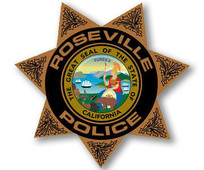
By: Rob Baquera, Public Information Officer, Roseville Police Department
Winter, without a doubt, is the most dangerous season for driving. Snow, fog, ice and strong winds can all cause hazardous driving conditions. Preparing yourself, and your vehicle, before heading out onto the roads is key to arriving safely to your next destination.
Prepare your vehicle before you travel
Lower outdoor temperatures lead to lower tire pressure. Ensure that your tires, including your spare, are at the vehicle manufacturer’s recommended inflation pressure. If you don’t know what that is, it’s usually on a label on the driver’s side door frame. It’s best to check tire pressure when the vehicle is cold. (It has not been driven for at least 3 hours.)
Also, check the status of your tires at least monthly, as well as before each major road trip. The tread depth should be at least 1/16th of an inch, and the tread and the side walls should be free of any cuts, bulges or cracks. Make sure to also check your spare tire. If you find any damage, take your vehicle to a professional for evaluation.
On a regular basis, check your vehicle:
- Batteries, along with the charging system, to make sure they’re operating efficiently.
- Lights- headlights, turn signals, brake lights, emergency indicators and even interior lights- are all operating.
- Fluids, make sure that you have enough engine coolant in your system, and your windshield fluid reservoir is topped up.
- And… make sure your gas tank is full and be cautious when it drops below 50% full. For electric vehicles, make sure they are fully charged. Always have a plan for where you can recharge them on your journey.
Prepare yourself and your family
It's a good idea to carry jumper cables and a flashlight in your trunk, along with flares or other kinds of emergency markers in case of a breakdown.
If you’re likely to encounter snow or ice, pack a snow shovel, broom and ice scraper. Inside the vehicle take blankets, a cell phone, car charger, water, food and any prescription medications.
Prepare your route
Check the weather forecast for your journey. If it looks bad, think about delaying until the weather improves, or going before the worst weather hits.
Make sure you let someone know what route you’re taking and when you expect to arrive. Call them when you do arrive.
Your driving style
Driving conditions are likely to be more dangerous. Leave a good gap between you and the vehicle in front. Avoid sudden acceleration, especially when pulling away from a stop. This will reduce the risk for wheel-spin especially on ice and after rain.
Most of all, SLOW DOWN! In poor conditions, speed is never your friend.





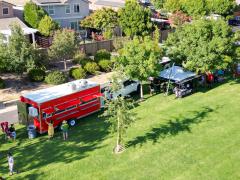
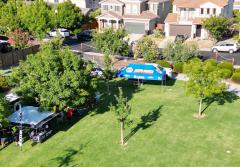



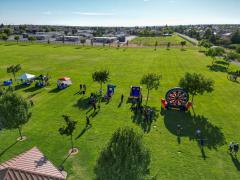

.jpg.296c4f9b814e93c3acee89acaac1d7e9.jpg)
.jpg.6b3ebaff1fd0e045cd8de51e87317c8a.jpg)
.jpg.1b55b3b439437918b8739148ddbf4171.jpg)
.jpg.793734edba13fb894471c2d86963beb0.jpg)
.jpg.a0deeb4f8c2ef2b5286ee415aa5bdef3.jpg)
.jpg.8f001df19b1cc4d522ddab16415656f3.jpg)
.jpg.607ba85a641473a3dce74f1e5c9ce1b3.jpg)
.jpg.e63821702a8055dc3839a87c52bbf86c.jpg)
.jpg.2149677f8044a79c93b9ad341cf1f2dd.jpg)
.jpg.2868d920626bba08a85a1aaed5391db6.jpg)
.jpg.b7e577504d33038e70c995c1cb0c3255.jpg)
.jpg.b06c4675de019177f8752c273ae3040d.jpg)
.jpg.13af6578261edcc098d86ede95e92d73.jpg)
.jpg.0a2155a39768c3c28f68d3cf20a6fbdb.jpg)
.jpg.b545a869278acaf5d9071e83cafb2378.jpg)
.jpg.2bc17dc7afb82ff85504e86ea3386f77.jpg)
.jpg.579b15c25b166b4db5b5837f5b425a40.jpg)
.jpg.56171e64df78f4aaed217a517c4bac59.jpg)
.jpg.8c548c5ab2e6f7a9813fa015857ad46f.jpg)
.jpg.ae7c2c1b1dd993e86dddae4a73651270.jpg)
.jpg.c3bf0d7fb41c08662a14de678b47ebb0.jpg)
.jpg.adc8fdbe54ede1d4ea166414870b6268.jpg)
.jpg.976b6d203b584bb3b95e72037ee7098a.jpg)
.jpg.75e5c92d60da119ec2bf3fde2b8efbe8.jpg)
.jpg.4348ef2ca3197a18004ededdeaa4e41b.jpg)
.jpg.74fdfe3d9fb982c6e29708f5ab219029.jpg)
.jpg.fea2c3c57714b3c4951fe7489592ee91.jpg)
.jpg.c09caa08007503b1d95eb68328d749ec.jpg)
.jpg.c4b4ea703eabe1f4d50dff2f05de700f.jpg)
.jpg.10e880365d144e5975bb69ef1201dfa0.jpg)
.jpg.46f7f8591acb1a18675bb82bb1a3d2ab.jpg)
.jpg.cbca1932c250203d4fb308e28a13258e.jpg)
.jpg.f1ca40f61b759b677e52e0e11655e271.jpg)
.jpg.1942a122c357e8307f1445ab8bb3bb6d.jpg)
.jpg.218a11559332d643e4964343378e4291.jpg)
.jpg.62287d46fedd6af165df9e335374bf5d.jpg)
.jpg.936bd69df0a5d4cf1899a38d4e766b45.jpg)
.jpg.00d9e487097a7111c1758523ba09550f.jpg)
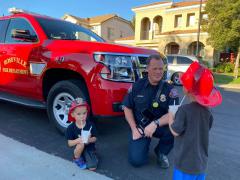



Recommended Comments
There are no comments to display.
Join the conversation
You can post now and register later. If you have an account, sign in now to post with your account.